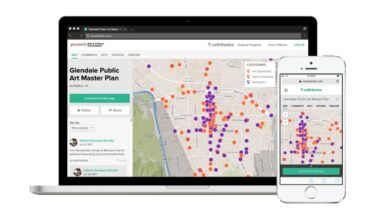Public meetings have always served as the rhythm of local government. I can rattle off when certain public meetings where I live are (Salem, MA), who are on those councils/committees, etc. But on Thursday, it became clear that life in my community and in many others around the country won’t be business as usual for a while – and rightfully so.

School is canceled for a minimum of three weeks. Gatherings are limited to 25 people. City Hall and all local government buildings are closed to the public. Restaurants will be takeout or delivery only until April 17. And city public meetings are canceled or postponed (with a few exceptions to keep the city functioning).
Local government can’t fully stop just because meetings and gatherings have. So what happens next? We’re actively working with our municipal customers (and some very proactive developers) to figure out how community engagement can still happen, even at a limited scale. Here are some ideas that have bubbled up from our discussions so far.
Overcommunicate.
I’ve seen a lot of social media posts complaining about the COVID-19 updates we’re receiving from every email list we’re on. But it’s important to understand how our daily lives are impacted – and how seriously this pandemic is being taken by all, from the federal and state governments to the stores and restaurants you love.
We say bring on the communication! This situation is evolving so rapidly. There’s no way to keep up-to-date with the most recent information if you’re relying on day-old information. I also encourage you to think about how you’re reaching your audience. In marketing, we call this the communication mix. What are the mediums you’re using (email, social media, phone calls, etc.)? How effective are they? Which languages should you be communicating in? For most communities, the answer is not English only.
The goal is to reach as many people, in ways that will find them, as quickly as possible.
Introduce virtual meetings if you can.
Massachusetts Governor Charlie Baker issued an executive order last week to suspend certain aspects of the state’s open meeting law. Other states are doing the same.
Board and commission members can join meetings remotely. Public access to meetings can happen virtually through phone or video conferencing. Of course, this assumes that a city or town has a conferencing system set-up already.
An important note: If you do not have a conferencing system you feel comfortable using with the public, please reach out to us. We can figure out a way to help you.
Look for digital alternatives.
We like to think of public meetings as just one tool in the toolbox for community outreach and feedback. Now more than ever, it’s important for us all to feel connected to our communities and each other.
Think of how you’re staying connected to your coworkers, friends, and family right now. If you’re like me, that looks like a lot of texting, Facetime and online interactions. You can use similar tools to continue community
engagement. coUrbanize is one of them, of course, but we also recommend looking at other tools like Facebook Live, Zoom and automated SMS (texting) to reach community members right now.
So what happens next? Well, none of us know how long this will be our new normal, but I can tell you one thing. We have been so impressed with how cities and towns across the country are coming together to address the evolving challenges of governing and communicating in a situation that none of us have faced before.
Stay safe and be well.
-Courtney Porcella, Director of Marketing at coUrbanize


